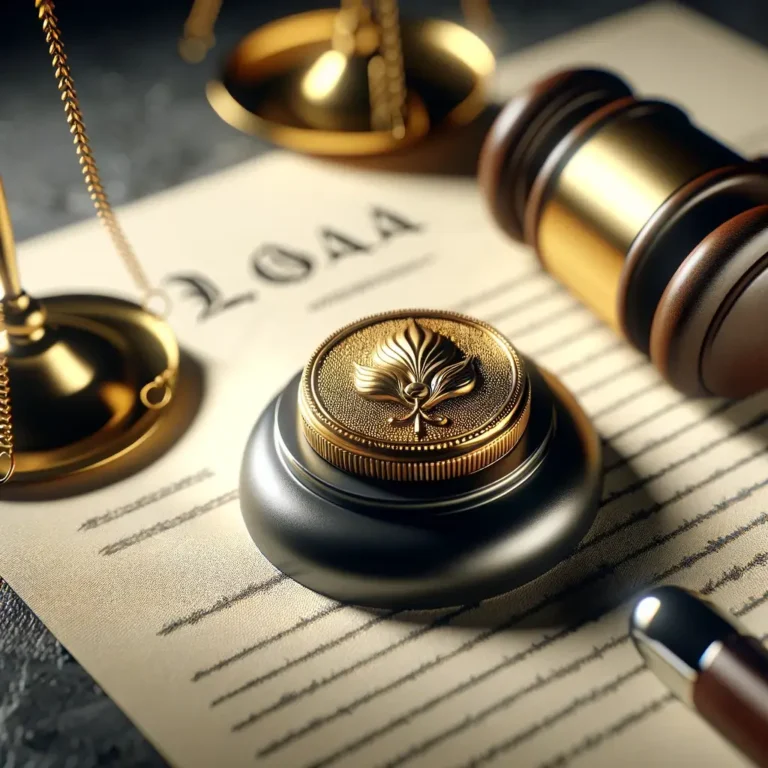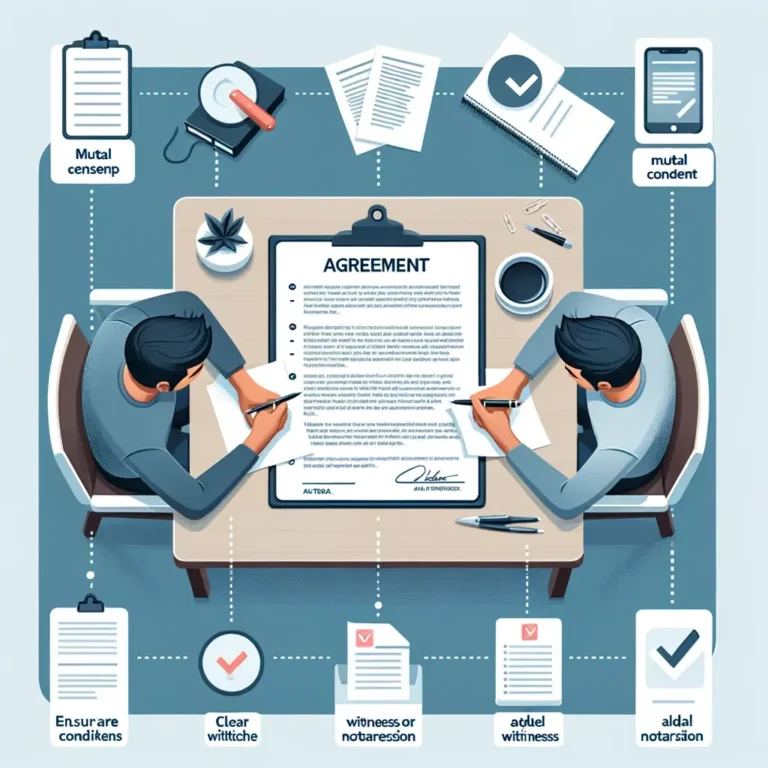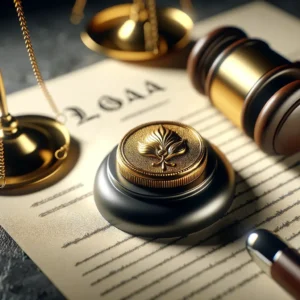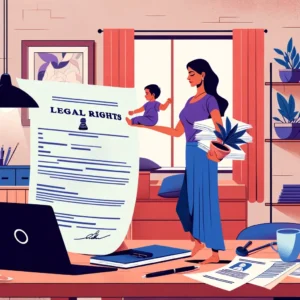In this article we have explained What Are My Rights If I Receive A Legal Notice.Receiving a legal notice can be a daunting experience. It often brings a sense of worry and confusion. In India, understanding your rights when faced with a legal notice is crucial to effectively respond and protect your interests. This article simplifies the concept of legal notices and outlines your rights, aiming to guide you through this process with clarity and confidence.
Understanding Legal Notice
What is a Legal Notice?
A legal notice is a formal communication to a person or entity about an intention to undertake legal proceedings against them. It’s a preliminary step in the legal process, allowing the receiver to resolve the issue out of court if possible.
Why is it Sent?
Legal notices are sent for various reasons, including property disputes, cheque bounce cases, divorce proceedings, or employment issues. It serves as a warning and an opportunity to settle matters amicably.
What Are My Rights If I Receive A Legal Notice in India?
Right to Consult a Lawyer
Upon receiving a legal notice, your fundamental right is to seek legal advice. A qualified lawyer can help you understand the notice’s contents, the allegations against you, and the best course of action.
Right to Reply
You have the right to respond to the legal notice. Typically, the notice specifies a timeframe within which you must reply. Ignoring it can be detrimental as it may result in the court proceedings against you without your input.
Crafting Your Response
- Understand the Claims: Carefully read the notice to understand the claims or demands made.
- Gather Evidence: Collect any documents or evidence that support your side of the story.
- Draft a Reply: With your lawyer’s help, draft a reply that addresses each point raised in the notice. It should be respectful, concise, and fact-based.
Right to Settle Out of Court
You have the option to settle the matter out of court. If both parties agree, it can lead to a quicker and less costly resolution. Negotiations can be done directly or with the help of lawyers.
Right to Defend Yourself
If an amicable settlement is not possible, you have the right to defend yourself in court. Your lawyer can represent you, presenting your case and evidence to counter the claims made against you.
Steps to Take After Receiving A Legal Notice
- Don’t Panic: Stay calm and composed. A legal notice is the beginning of a process, not the end.
- Read Carefully: Understand what is being asked or claimed.
- Seek Legal Assistance: Contact a lawyer who specializes in the relevant field of law.
- Reply Timely: Ensure you respond within the specified period.
- Preserve Evidence: Keep any documents or information that might be relevant to the case.
Final Thoughts
Receiving a legal notice in India does not automatically imply guilt or wrongdoing. It’s a chance to present your side of the story. By understanding your rights and taking appropriate action, you can navigate this process more effectively. Remember, legal issues are complex, and seeking professional advice is always the best course of action.
FAQs on Receiving a Legal Notice in India
1. What is a legal notice?
A legal notice is a formal document sent to inform an individual or entity of the sender’s intention to initiate legal proceedings against them.
2. Who can send a legal notice?
A legal notice can be sent by anyone who intends to initiate legal action against another party, including individuals, companies, or government entities.
3. How is a legal notice delivered?
A legal notice is typically delivered via registered post or courier service to ensure there is proof of delivery.
4. What should I do first upon receiving a legal notice?
First, carefully read the notice to understand its contents and consult a lawyer for legal advice.
5. Do I need to respond to a legal notice?
Yes, it’s important to respond to a legal notice within the time frame mentioned to avoid adverse legal consequences.
6. How long do I have to respond to a legal notice?
The time frame to respond usually ranges from 15 to 30 days, depending on the issue and is specified in the notice.
7. Can I ignore a legal notice?
Ignoring a legal notice is not advisable as it can lead to legal proceedings being initiated against you without your input.
8. How do I respond to a legal notice?
Respond to a legal notice by drafting a reply with the help of a lawyer, addressing all the points raised in the notice.
9. What happens if I don’t reply to a legal notice?
If you don’t reply, the sender may proceed to file a lawsuit against you, and the court may not consider your side of the story.
10. Can a legal notice be sent for any reason?
Legal notices are typically sent for specific reasons like property disputes, payment issues, divorce proceedings, etc.
11. Is it necessary to hire a lawyer to respond to a legal notice?
While not mandatory, consulting a lawyer ensures your reply is legally sound and effectively protects your interests.
12. Can I settle the matter out of court after receiving a legal notice?
Yes, you can negotiate and settle the matter out of court if both parties agree.
13. What is the cost of responding to a legal notice?
The cost varies depending on the lawyer’s fees and the complexity of the case.
14. Can I send a legal notice by myself?
Yes, you can draft and send a legal notice by yourself, but having it reviewed by a lawyer is recommended.
15. What details should a legal notice contain?
A legal notice should clearly state the issue, the legal basis for the claim, the relief sought, and a timeframe for the recipient to respond.
16. What if the legal notice has false accusations?
In your reply, you can refute the false accusations with evidence and legal arguments through your lawyer.
17. Can a legal notice be challenged in court?
The notice itself cannot be challenged, but the claims within it can be contested in court.
18. Is receiving a legal notice the same as being sued?
No, receiving a legal notice is a preliminary step before any lawsuit is filed.
19. What if I receive a legal notice at an old address?
If it comes to your knowledge, it’s advisable to respond to avoid legal proceedings proceeding without your input.
20. Can a legal notice lead to immediate legal action?
No, it serves as a warning and offers a chance to resolve the issue before legal action is taken.
21. How should I preserve evidence related to the legal notice?
Keep all related documents, communications, and any evidence that supports your case in a safe place.
22. Can I negotiate after sending a reply to the legal notice?
Yes, negotiations can continue even after sending a reply, aiming for an amicable settlement.
23. What if I agree with the claims in the legal notice?
If you agree with the claims, you can respond accordingly and seek to settle the matter as proposed.
24. Can a legal notice be withdrawn?
Yes, the sender can withdraw the notice if they decide not to pursue legal action.
25. Is a legal notice public information?
No, it’s a private communication between the sender and the recipient.
26. Can I send a counter legal notice?
Yes, if you have claims against the sender, you can send a counter notice through your lawyer.
27. What is the importance of the legal notice’s date?
The date is crucial for determining the timeline for response and any subsequent legal actions.
28. How does one prove the delivery of a legal notice?
Delivery can be proved through courier or postal receipts and tracking information.
29. Can a legal notice be sent via email?
Yes, legal notices can be sent via email, but sending a physical copy is advisable for formal documentation.
30. What if the recipient refuses to accept the legal notice?
If the recipient refuses, the delivery attempt and refusal are usually documented, which can be presented in court as proof of attempt.
















